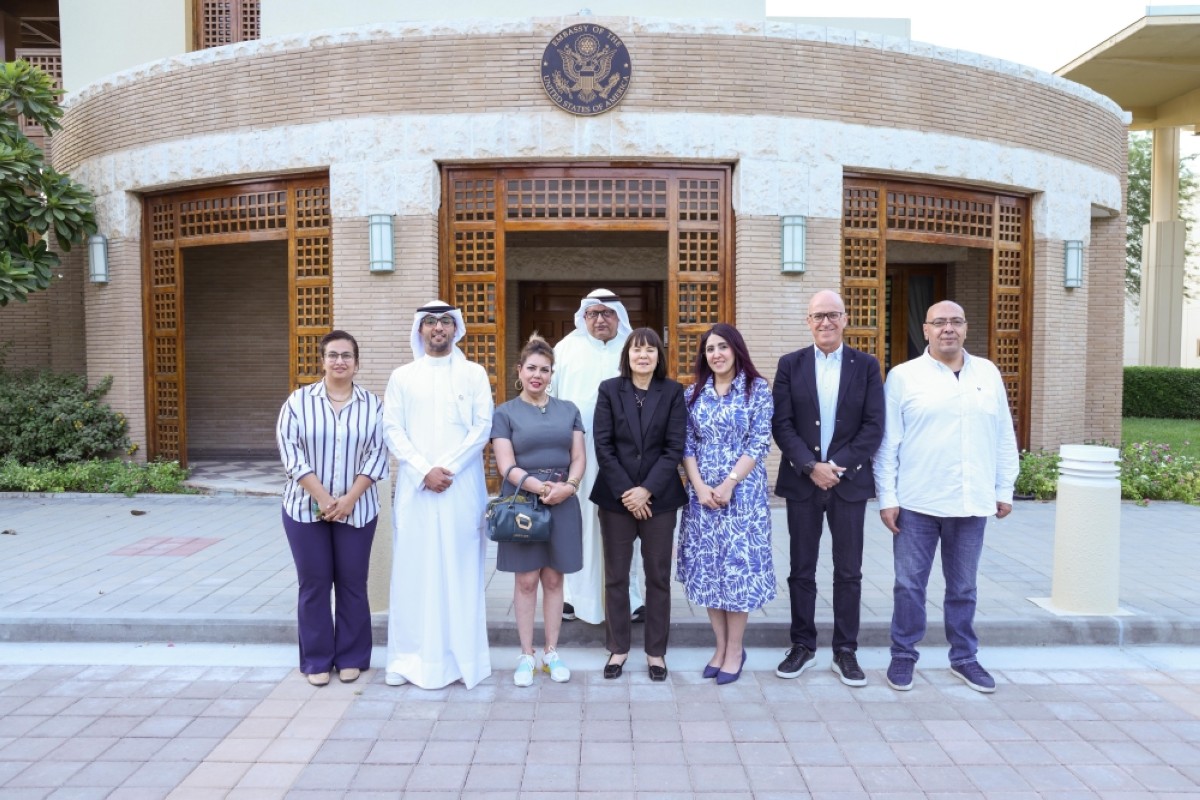KUWAIT: The US Ambassador to Kuwait, Karen Sasahara, reaffirmed the longstanding strategic partnership between the United States and Kuwait. During a press roundtable, Ambassador reaffirmed the US-Kuwaiti relationship as “ironclad” and deeply rooted in history, stating, “Our relationship goes back many decades, well before the invasion or liberation. Five generations, working on number six, have studied in the US.” She highlighted Kuwait’s significant role within the alliance framework, noting that a NATO center has operated in Kuwait since 2017, reinforcing bilateral cooperation in regional security and defense.
She added, “Kuwait became a strategic non-NATO ally in 2004, and last September, His Highness the Crown Prince visited New York to commemorate the 20th anniversary of this milestone. The event was highly successful, reflecting the strength and depth of the strategic relationship and playing a key role in fostering stability and collective security in the Gulf region.” She added that the bilateral relationship is not limited to military cooperation only, adding, “It spans healthcare, technology, IT, and robust commercial exchange.”
The Ambassador emphasized Kuwait’s importance in the regional security architecture, referencing last week’s close coordination during missile threats, which prompted intense diplomatic and military engagement. She added, “Iran is not far away. We stayed in close contact with Kuwait’s civilian and military leadership. Our partnership required a joint understanding of the risks.” Ambassador Sasahara praised the Gulf Cooperation Council’s (GCC) unity in responding to the threats, saying, “The GCC came together quickly. All the foreign ministers went to Doha and issued a unified statement. That was impressive.”
She stated that threats from regional actors like Iran endanger regional stability, stressing the destabilizing impact of conflict. The Ambassador highlighted the regional preference for “Commerce over conflict,” a mantra often echoed by President Donald Trump. “Conflict is bad for business, bad for stability, and bad for peace. Every Gulf nation is more interested in economic development than warfare.” On potential regional confidence-building measures, the Ambassador was cautiously optimistic.
“There are good mechanisms, the GCC, the Arab League, and the OIC. Syria’s reintegration is one example of a confidence-building measure,” she explained. She noted President Trump’s lifting of sanctions on Syria to allow humanitarian aid, and recent regional support for Syria’s recovery, indicating, “If regional actors continue talking and meeting, like Lebanon’s new President Joseph Aoun’s visit, that’s a good sign.”
Addressing the issue of student visa policies in light of recent legislation and delays, the Ambassador acknowledged the difficulties students have faced, reaffirming the US policy objective, explaining, “We are balancing legitimate international travel with national security priorities.” The Ambassador confirmed that the issuance of F, M, and J visas had resumed last week and emphasized that the process is still evolving. “There are new processing requirements, but we have been transparent. We’re committed to welcoming students,” she said.
Responding to claims that some students were denied visas due to pro-Palestinian content on social media, the Ambassador explained, “This is the administration’s decision on the criteria. Students are expected to go to the US for education, as stated in their application.” Concerning President Trump’s recent announcement of a potential Gaza ceasefire, the Ambassador confirmed the administration’s focus, stating, “The President is extremely engaged. Commerce instead of conflict, it’s not just about making money. It’s about the hostages, Hamas’ commitments, and regional security. We have a special envoy, Steve Witkoff, who has been actively engaged and deeply focused on this issue. So now, we’re watching closely to see what the special envoy does and how the various parties respond.”
In response to her experience in Kuwait during her tenure, she highlighted Kuwait’s uniqueness, saying “I have enjoyed the people, the experiences, and the intellectual exchange. We see each other constantly at national days and diplomatic events,” noting that Kuwait’s multicultural fabric, including large expatriate communities, offered deep insights into the country’s diversity.


